A game like Bravely Second: End Layer can take time to settle into if you’re unprepared. A seemingly minor change to the common JRPG battle formula—that of “Brave” points and “Default” blocking to “save up” those points and unleash them when you’re ready—can have a major impact on the flow of battle, and the world around those battles has some unique quirks that aren’t common to every game in the genre. So, here are a few tips to help get you through the tougher battles… so, you know, you’re prepared for the worst as best you can be.
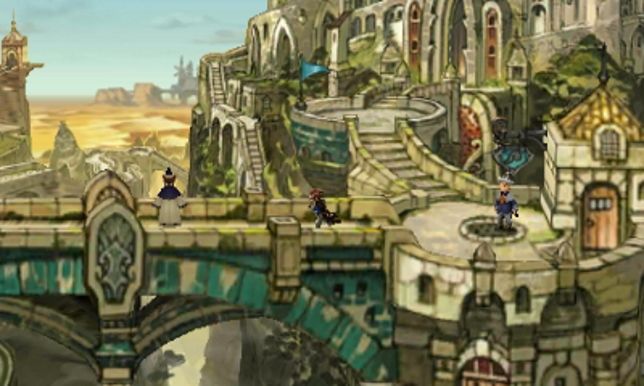
1. Lots of loose loot hanging around town
Like, enough that it’s really worth looking for. It’s not always very expensive loot, but especially early on when money is more scarce, finding a stray Hi-Potion (especially once you’ve learned the “Halfsies” ability to split an item’s effectiveness among the whole team) is more than helpful. It could be what saves the day in a tough bout.
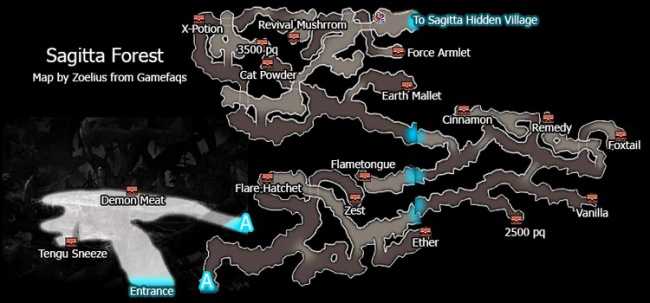
2. Speaking of loot, there’s plenty of chests in caves, forests, warehouses… but there are other items too.
There are only a few chests throughout a given area, but that doesn’t mean that’s the only loot. Like towns, there’s loose stuff all over the place, much of it shining off in a corner to let you know it’s there. If you find a dead-end uncovered on the map, it’s consistently still got something there to grab, so it’s worth checking every nook and cranny for one extra Phoenix Down. And on that note…
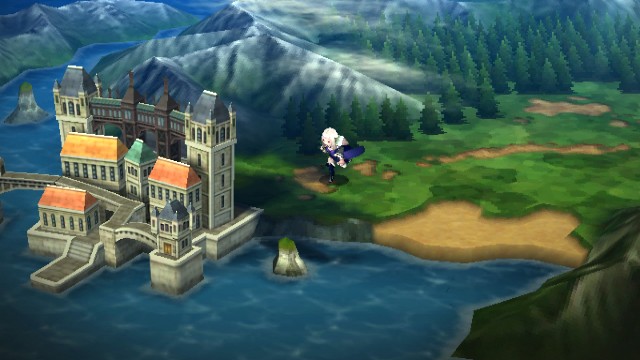
3. When exploring previously-discovered areas, to save time and energy, you can turn off/limit random battles by hitting the right shoulder button and turning “Encounters” to -100%.
Grab the stuff and go. This is extremely helpful if you know there’s something there, but you’ve leveled up to the point that the enemies native to that map are only a waste of time, and you want to make sure you found everything there is to find. Sure, you won’t get the measly amount of XP, or that extra 20pg for a basic potion you’ve had your eye on, but when you’re strong enough you can find a better (and still plenty weak) opponent to beat down and get rich from.
This can also help enormously when you’re out of any Teleportation Stones and you’re beat the hell up. It’ll take a while longer to reach the exit, but it’s a safe tunnel back to town when needed
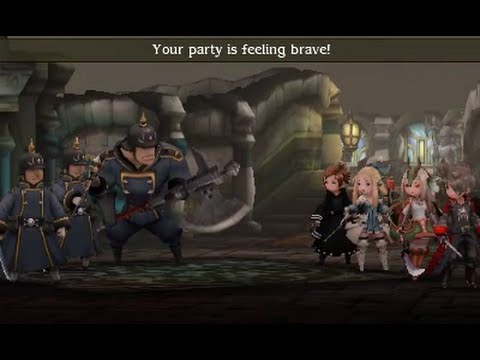
4. When facing new enemies—especially bosses—it’s good to get prepared by Defaulting first. Like, the whole team.
Remember that Defaulting on a turn is both saving a turn and defending, so yes, you’ll be a little vulnerable (more likely to status alterations like poison or sleep attacks) but you can better gauge just how tough the fight will be. Also, by Defaulting once early, you’ll have a second Brave point to spend to heal up and still attack, or just unload on your enemy. Also, you can use a more powerful attack right then and there, with the healer and anybody else ready to back you up should you decide to totally unload with one character or another.
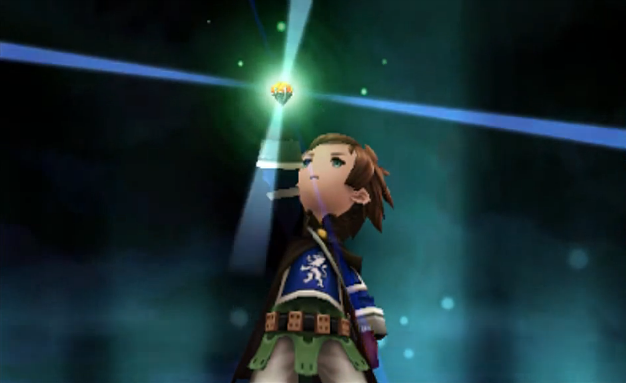
5. Take on the asterisk side-missions.
No matter which ethical side you choose, you’ll be able to take an asterisk, and the experience from this “secondary boss” can help in preparing for the next section. Besides, you may discover a class that you’ll be happy with and want to take full advantage of specific to your preference, which can then be leveled up along with the character you’ve given the job to and simply WRECK anything in your path.
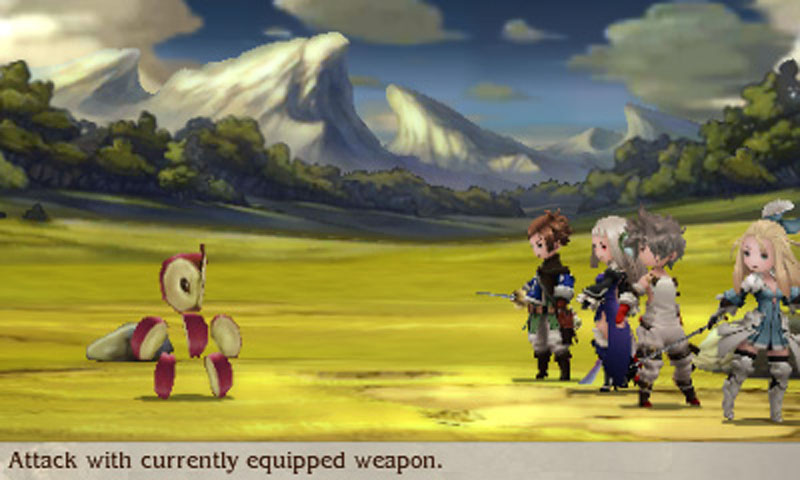
6. When in doubt, Default. When almost in doubt, Default everybody but maybe your healer, whomever that might be.
If you have multiple characters that can use basic healing abilities—especially that previously-mentioned “Halfsies” ability to split potions and the like—then you have a wider range of who can take on any healing burden should it become necessary, but only rarely should you stretch yourself thin as it is, especially against bosses.
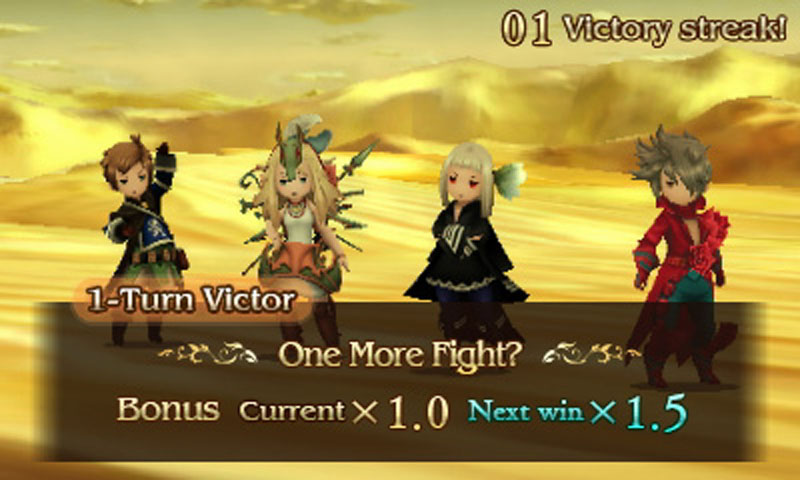
7. If you eliminate every enemy on your first turn, you’ll be able to chain into another fight.
This will earn you a multiplier for the amount of money and experience you receive after winning, but it’s risky, since Brave points will carry over from the previous battle—meaning if you’ve attacked with one character, they won’t be able to attack at the beginning of the next turn. Yes, you can chain together up to four battles, but the more risk you take, the longer you’ll leave yourself open to attacks, so best not to try too hard to make it work when facing off against opponents where you’re already level-wise at risk.
But when employed appropriately, this kind of risk-reward can net some serious coin and experience if played correctly. If you’re a level or two over the recommended level of the environment, then chaining an extra battle in if possible is just fine. But again, if you’re pushing too hard—say two extra battles which took multiple Brave points from your allies—you’re wide open to a quick and unnecessary crushing. Attack wisely.
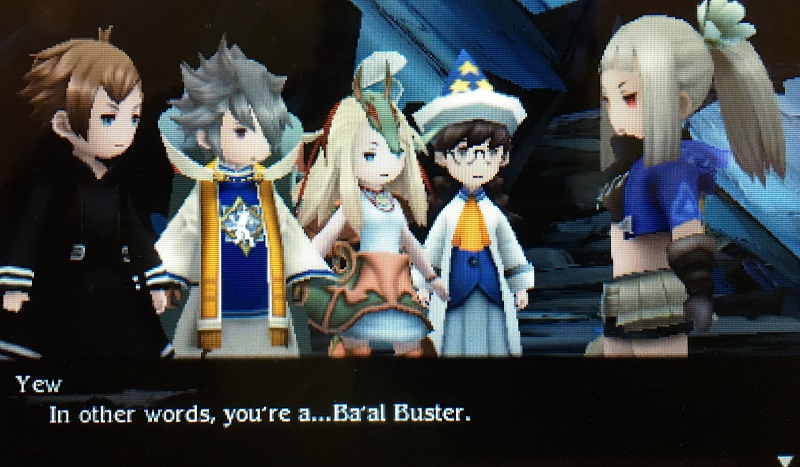
8. Obtaining new job classes can allow abilities shared between everyone, so side-quests for asterisks can be INCREDIBLY valuable.
This can be done for plenty of reasons: you like casting spells and certain classes have both different requirements for similar effects, or more effective and better cost-efficient spellcasting, or you just like the idea or throwing cats at everything in your path.
Also, some classes may have an added skill that helps in battle. For example, the Swordsman has a moderate chance of countering immediately after attacking, and can employ a skill that reduces damage and always counters—powerfully—after they’re directly targeted. Keeping up the damage can swing the tide of battle, as can regrouping and unleashing all at once, so the more classes you have, the better you can tailor to your own battling preferences.







